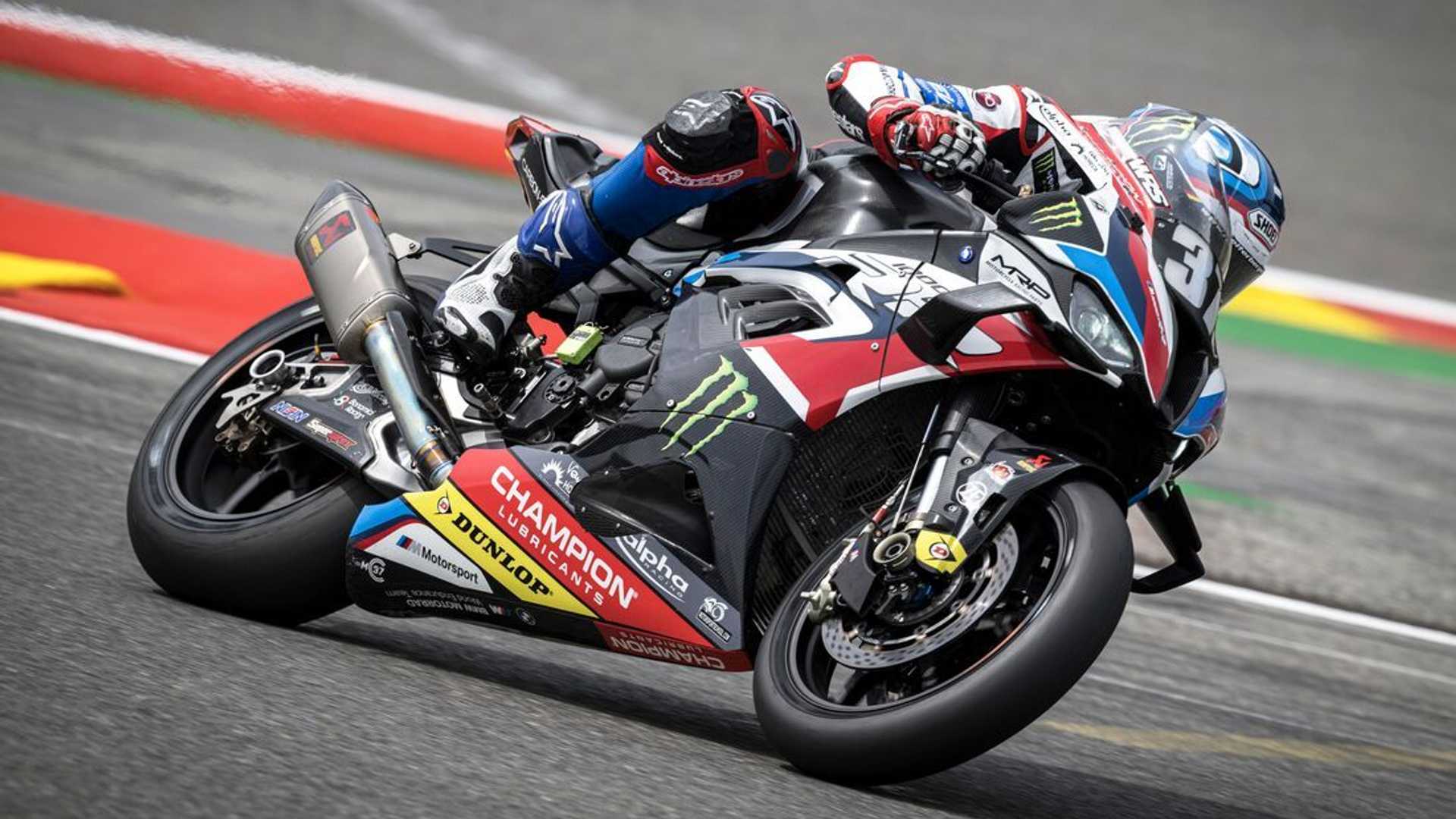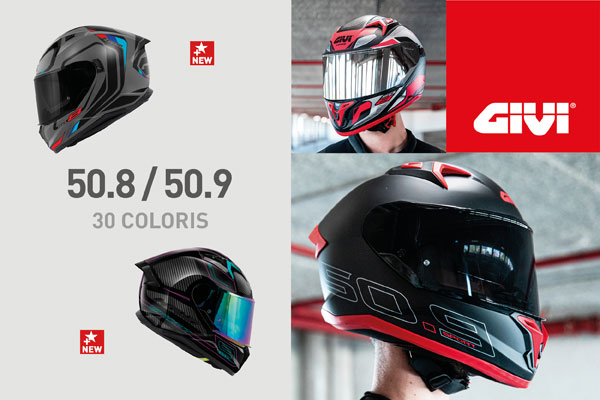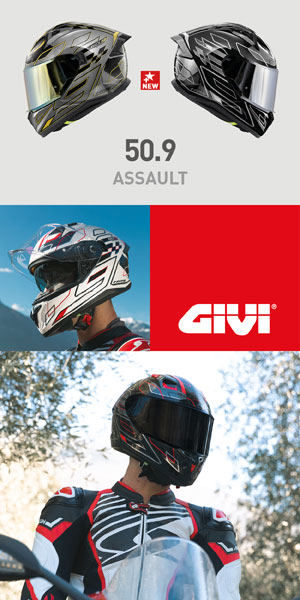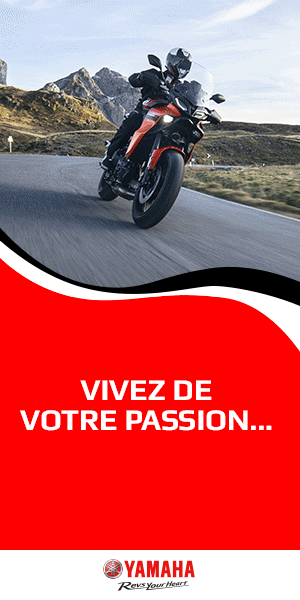BMW Motorrad offers an eclectic variety of front suspensions. From the conventional fork of the R 18 to the semi-active unit of the S 1000 R, from the Telelever system of the R 1250 GS to the Duolever suspension of the K 1600 GT, innovation is high on the list of priorities of the Munich brand. Indeed, BMW won the 24 Hours Spa by testing the new carbon fiber telescopic fork, developed in partnership with ZF, and which can be adjusted to modify its rigidity.
While carbon fiber front ends are commonplace in MotoGP, BMW does not participate in this competition. As a result, BMW turned to the World Endurance Championship as a test bed for its new component. Suspended from the number 1000 BMW M 37 RR, the fork consists of a carbon fiber outer tube coupled to a carbon fiber/metal composite inner tube. Similar to most inverted forks, metal fork sliders slide into carbon fiber tubes.
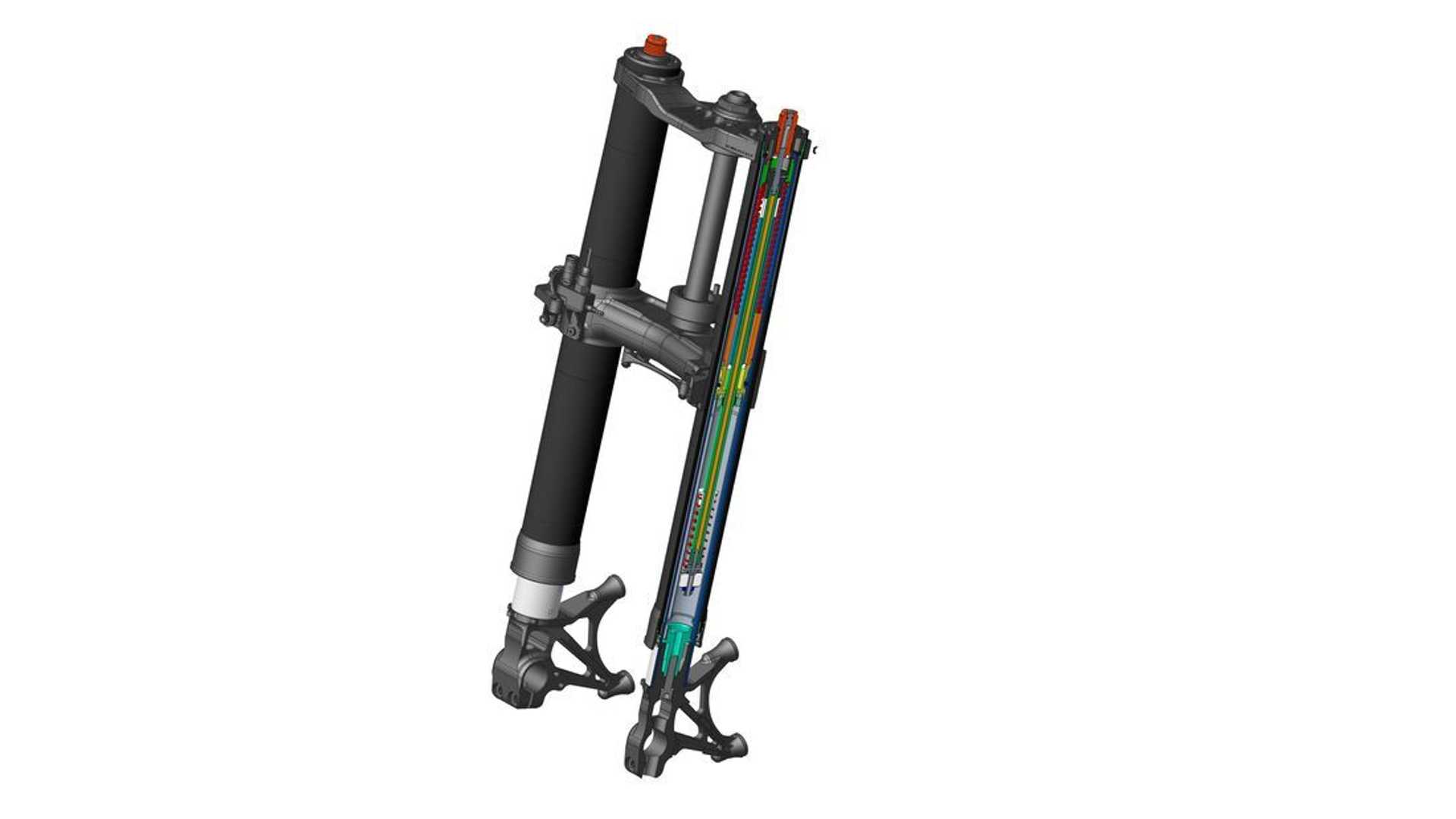
Using the lightweight material not only reduces weight, but also allows BMW and ZF engineers to modify the stiffness of the front end as they wish. This allows the team to dial in the flex and handling characteristics of the bike.
“Using this material and technology allows us to shift the threshold at which body vibrations occur,” explained Mark Bongers, Director of BMW Motorrad Motorsport. “One of the main development goals was the design of homogeneous bending loads. The aim being that the throttle response for the rider is extremely subtle, even under the most extreme constraints. And the feedback from the pilots confirmed that the objective was achieved. »
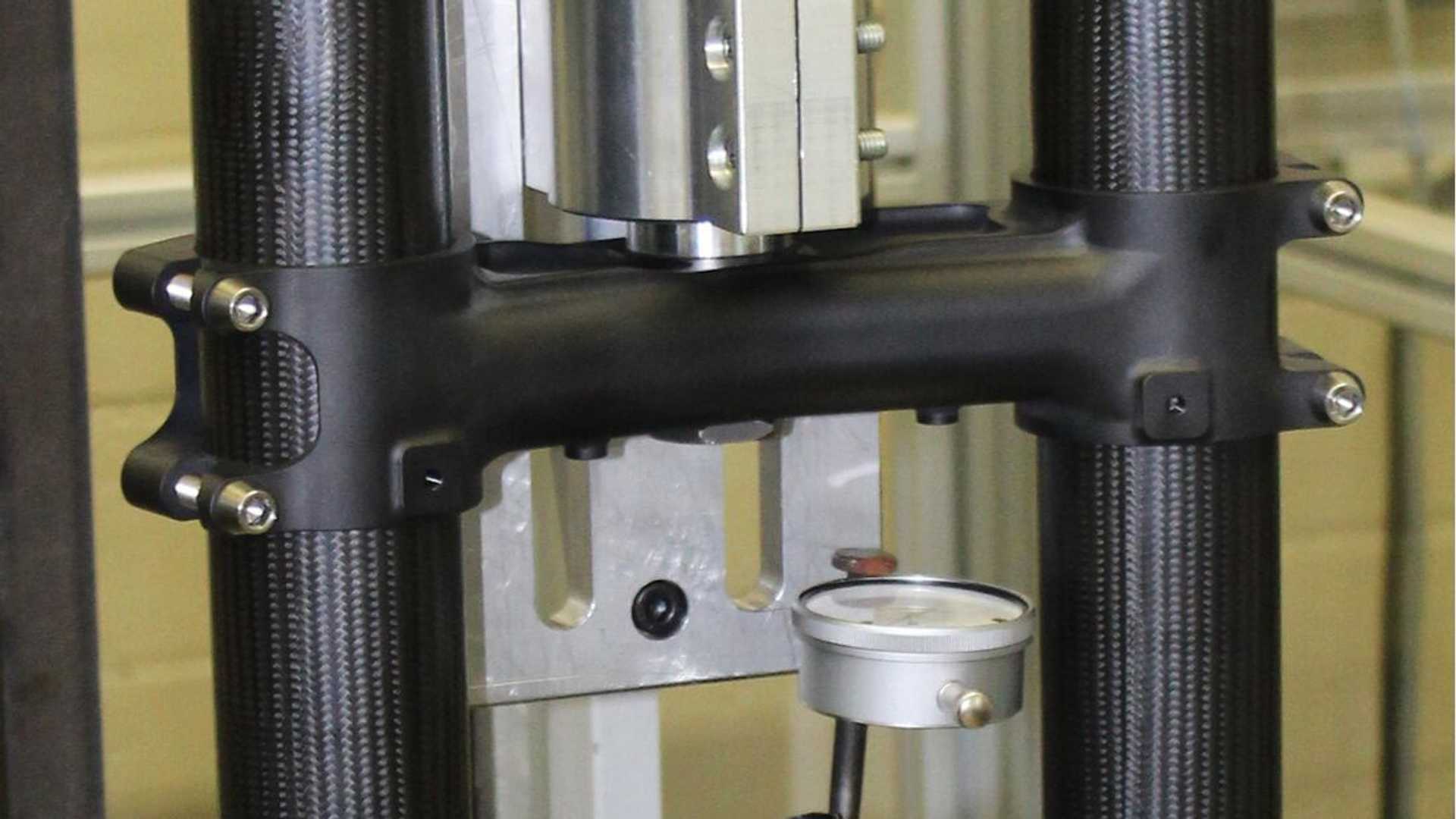
All the team's hard work paid off as the number 1000 BMW M 37 RR won the 2022 round of the Spa 24 Hours. While the new suspension has proven its meddling on the track, its immediate success makes us wonder if the system will be fitted to the M 1000 RR in the future. Of course, the component will have to meet strict homologation standards before this happens, but it seems the team is well aware of this fact.










